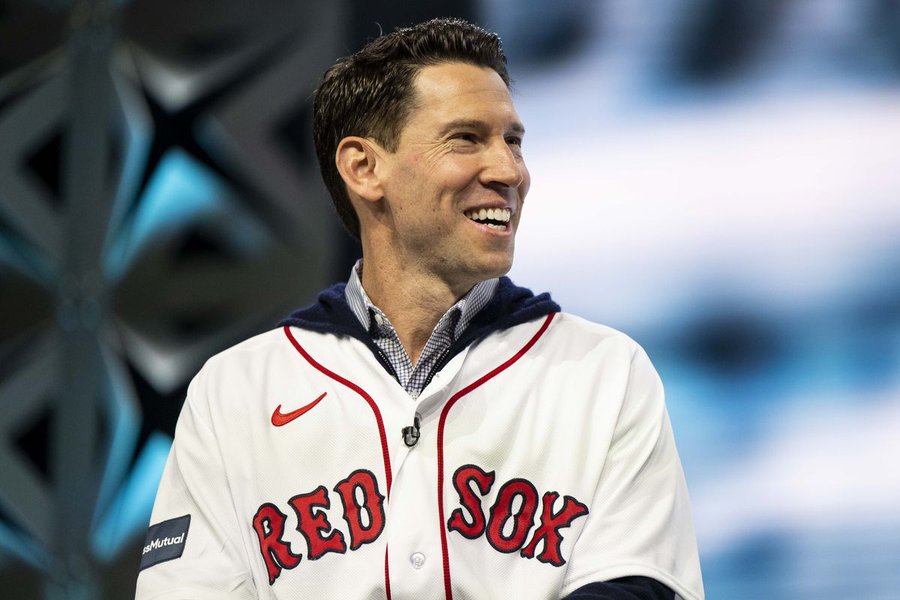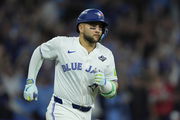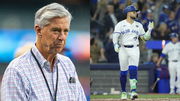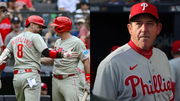
Imago
Image: IMAGO

Imago
Image: IMAGO
As the Red Sox squad climbed up the charter to Seattle, the man who was signed to the franchise as a 16-year-old in 2013 stayed on the ground to sit in a cab to San Francisco. And that was the beginning of the end that the chief baseball officer Craig Breslow didn’t see coming. He had just traded Rafael Devers, the face of the franchise who played over 1000 games to make his identity known as part of the Bostonians, winning the 2018 World Series for the only organization he has ever played for pitchers Kyle Harrison, Jordan Hicks and two prospects with the trade deadline just over a month. The team, as a result, would go on a 3-6 deflating West Coast trip. Yet, despite entering Friday’s matchup 40-42, Breslow showed all signs of optimism, promising, “the future has to be now.” But just after the game, the tables had turned.
Watch What’s Trending Now!
The organizational optimism devolved into a five-game losing streak, a 40-43 record, as the Jays handed a 9-0 defeat to the Red Sox. Interestingly, Breslow has analytics-heavy approach, but he had a massive miss from the bull’s eye with Devers. Now, their offense struggles without Devers’ bat in the lineup, here are some insights for you:
| With Devers | Without Devers (last 10 games) | |
| Runs per game | 4.8 | 2.8 |
| Batting average | .253 | .184 |
ADVERTISEMENT
Still, a couple of days ago after a 5-2 loss against Angels, Breslow remained steadfast, reiterating that the team is “as committed as we were six months ago to putting a winning team on the field.” However, the evidence stands against his strategy. And now, former MLB GM Dan O’Dowd, who built the Colorado Rockies’ 2007 National League pennant team during his 15-year tenure, has delivered a scathing criticism of Breslow’s approach.
In a tweet shared by Foul Territory, O’Dowd argued, “He doesn’t act like it (a former player). He acts like a lot of current GMs which is players are part of a portfolio that they buy and sell. Raffy didn’t handle it maturely but I don’t think the expectation was the he was gonna handle that maturely.
“But if they had flown to the DR (Dominican Republic), and they had looked him (Devers) in the eyes and said, ‘Listen, you’re not a real good defender. We got a chance to sign Bregman or trade for Arenado. We’re going to do that. So, let’s talk about what the transition is for you, I think they could’ve put a first base glove on him. And I think Raffy should have recognized that his long-term value in the game or even getting into the Hall of Fame someday, it creates way more value if he’s playing a more position than DHing…
ADVERTISEMENT
“I think the sum of their parts does not equal the bigger part. In fact they should be sellers at the deadline. Just that when you come out publicly and you say,’Hey listen, we’re not taking a step back after the Devers deal’. I mean, your credibility with your fan base begins to erode to the point that it may not be salvageable if you keep going back on the things that you promised.”
This transactional mindset has become endemic across modern front offices. Consider how the Padres shuffled Juan Soto despite his MVP-caliber performance. Today’s GMs treat star players like stock options—valuable assets to be leveraged for maximum organizational return rather than foundational pieces deserving loyalty.
ADVERTISEMENT
But O’Dowd believes Breslow, as a former player, should operate differently. During Breslow’s playing career from 2005 to 2011, the baseball landscape prioritized relationships and player development over pure analytics. Veterans like Derek Jeter spent their entire career with one organization, and trades involving franchise cornerstones were rare, earth-shaking events. Breslow pitched in an era where David Ortiz’s Red Sox loyalty was reciprocated with a lifetime commitment, not a spreadsheet calculation.
Dan O’Dowd says Craig Breslow doesn’t act like a former player. 😬
“He acts like a lot of current GMs, in that players are a part of a portfolio that they buy and sell.” pic.twitter.com/CQ0kuTcysd
— Foul Territory (@FoulTerritoryTV) June 26, 2025
And Devers’ trade couldn’t have come at a worse time—Boston had won eight of their past 10 games when they traded their best hitter, including five crucial victories against the division-leading Yankees. Since Devers’ departure, the Red Sox have stumbled to a five-game losing streak, validating critics who questioned the decision to sell during a hot streak.
ADVERTISEMENT
Now, O’Dowd also believes the Red Sox should be sellers at the trade deadline, cutting straight to the heart of Boston’s fundamental problem—they’re chasing playoff dreams with a roster that lacks the cohesive talent necessary for postseason success. But should Boston really work around this?
Why the Red Sox should embrace seller status
With a 16.6% playoff probability, the Red Sox roster construction reveals fundamental flaws that no mid-season additions can solve. Boston’s core issues extend beyond Devers’ absence and expose why O’Dowd’s “sum of their parts” criticism rings true.
ADVERTISEMENT
Their starting rotation lacks depth beyond Garrett Crochet, their bullpen remains inconsistent, and their lineup strikes out at alarming rates—766 times since April, ranking third-worst in MLB. Young prospects like Marcelo Mayer show promise but aren’t ready for immediate impact. Veterans like Trevor Story provide steady production but lack the star power necessary for postseason contention.
Rather than chasing marginal upgrades that won’t address systemic problems, Boston should maximize their tradeable assets. Players like Kenley Jansen, Tyler O’Neill, and Nick Pivetta could return meaningful prospects while the market values veteran contributors. The Red Sox front office’s reluctance to accept reality only delays inevitable roster reconstruction.
Top Stories
Latest Yankees Crisis Takes Turn for Worse as Hal Steinbrenner Loses 3 Players in One Single Day

Rift Cracks Open in Blue Jays as Real Reason Behind Bo Bichette’s Exit Emerges, per Insider

Dave Dombrowski Bashed for Being Not Totally Truthful Over Phillies Chances After Failed Bo Bichette Signing

Who Are Kyle Tucker’s Parents? All about Mike Tucker and Lisa Fernandez

Controversial Phillies Outcast Sparks Padres–Marlins Battle Months After Ugly Rob Thomson Fallout

Devers’ absence has created a leadership and production vacuum that patchwork solutions cannot fill. The All-Star’s departure removed not just their most consistent bat, but their emotional anchor during adversity. With Alex Bregman still on the IL, Boston lacks a veteran presence to guide them through slumps that would have been manageable with their former cornerstone.
ADVERTISEMENT
The psychological impact, additionally, extends beyond statistics—this team appears rudderless, chasing breaking balls and missing fastballs with alarming frequency. What began as roster optimization has become offensive devastation, leaving the Red Sox with plenty of questions and precious few answers as the trade deadline approaches.
ADVERTISEMENT
ADVERTISEMENT
ADVERTISEMENT